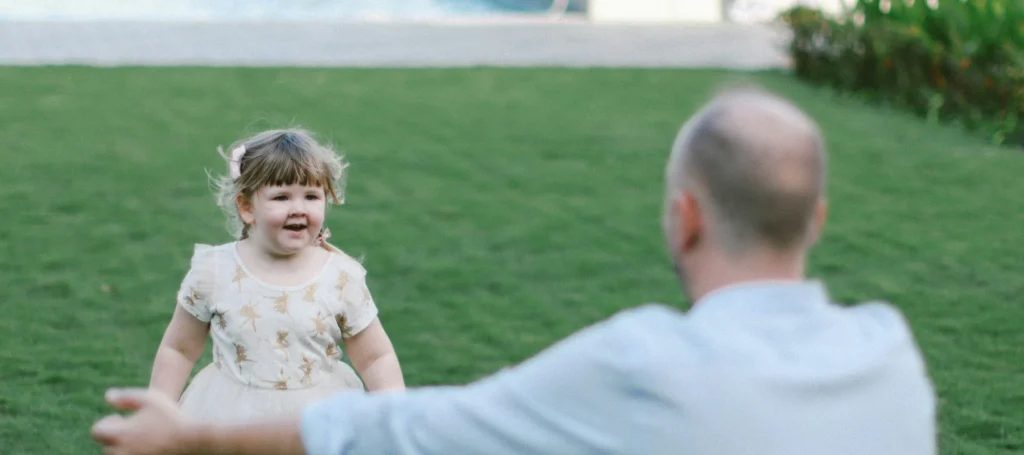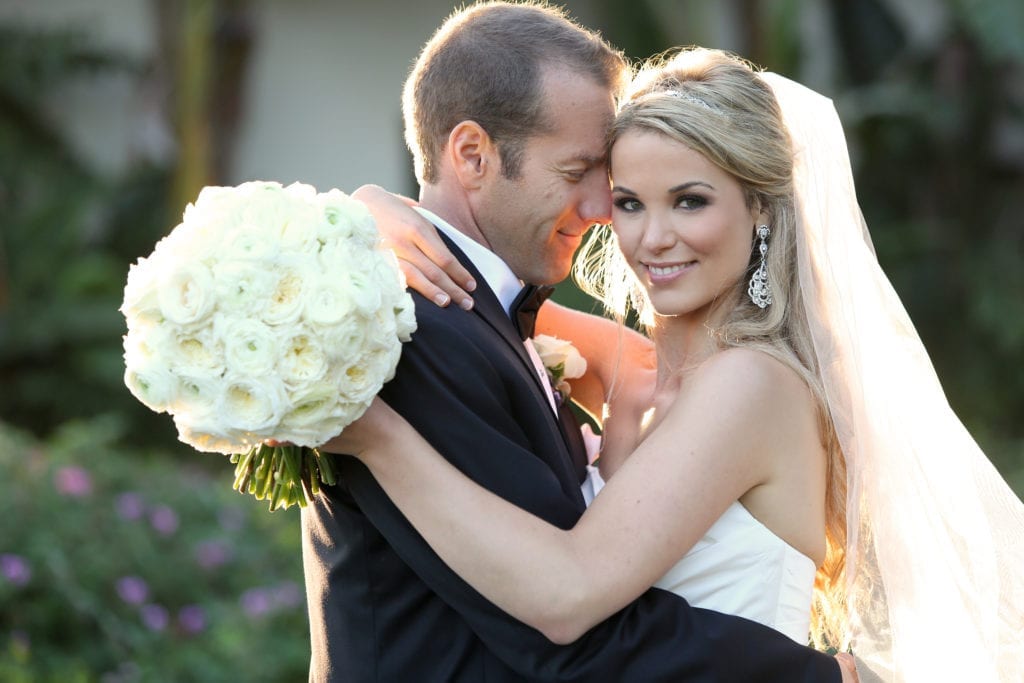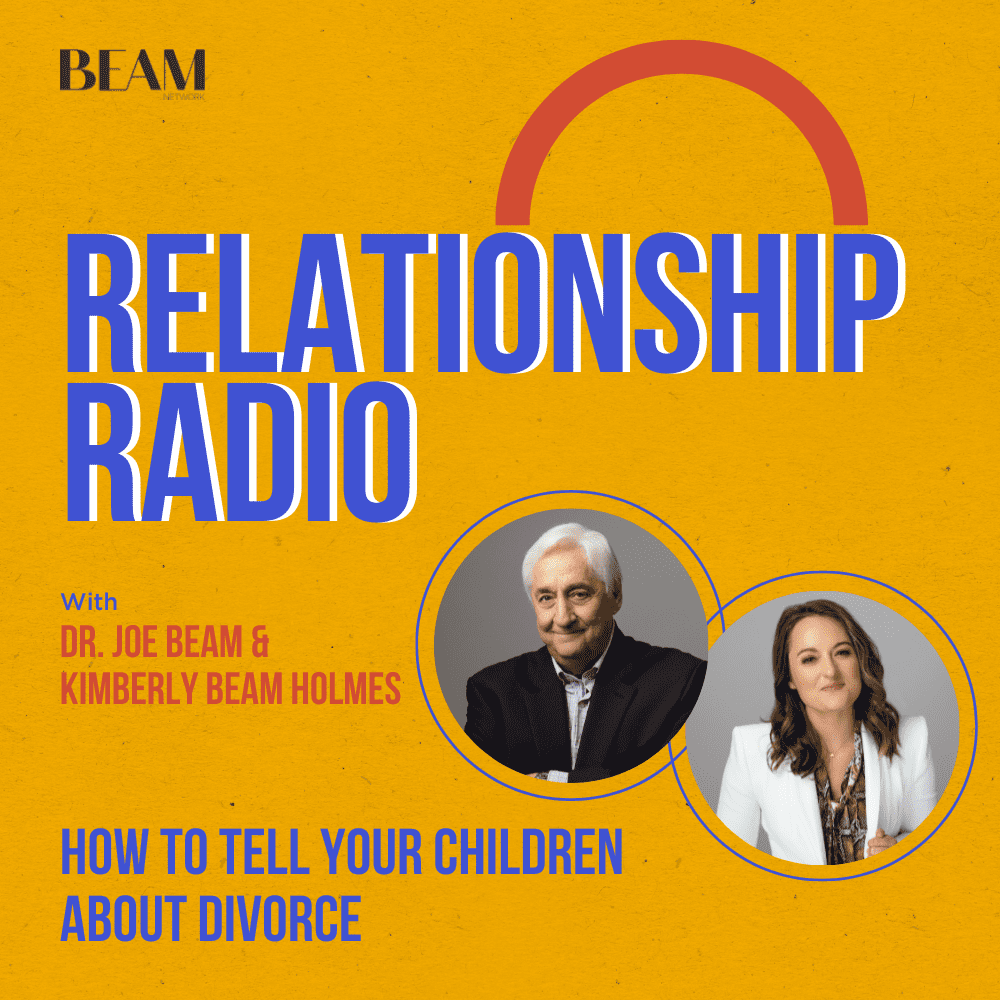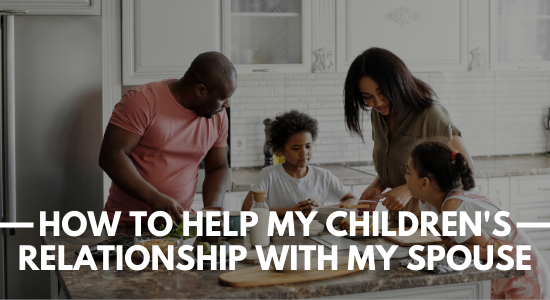Quick Answers:
We’re separating with kids – how can I minimize the impact on my children?
Children take on parents’ emotions. Find your emotional support outside of the home to minimize emotional impact on your children.
How can I help my kids through divorce or separation?
Be present with your children physically and emotionally. They need your guidance and assurance, your time, and physical touch and activities with you.
What if my spouse gets angry over me spending time with the kids?
You should never give up time with your children because you’re trying to appease your spouse or to not make them angry.
About Kimberly Beam Holmes
Marriage Helper CEO
Kimberly Beam Holmes is passionate about saving marriages. A frequent speaker at women’s conferences and marriage events, she holds a master’s and Ph.D. in Psychology.
If you and your spouse are separated, and you have children together, this is for you. In fact, when I was getting my master’s degree in psychology, I did my final thesis on how divorce (and separation) of parents affects children.
Now, what I’m sharing with you today isn’t going to be all-inclusive, with everything you need to know on this topic, because there are thousands of different research studies about this. However, I do want to share with you three key things you need to understand about separation and children. (Plus, I’ll share a bonus tip that you do not want to miss!)
During Separation, Your Children Will Look To You

Missing that feeling of deep connection with your spouse? Our FREE mini-course offers practical steps to save your marriage, bringing back the intimacy and closeness you crave. Rediscover the joy of physical and emotional connection in your marriage. Join TODAY!
The first thing you need to understand is as a parent is when you’re going through a separation it’s already an emotional toll on you as a human- as the husband, or as the wife. You are already experiencing the emotions that come with separation before even thinking about your kids. You, as a human being, are going through a lot right now. So be sure to give yourself grace and realize that you are probably more irritated than normal, more frustrated than normal, more angry than normal, or maybe more lonely and more depressed than normal.
While it’s important for you to realize this so you can be self aware and find support, you also need to realize how this might be affecting your children.
There’s a lot of different things that go on when you’re separated. Like I just said, you have parts of you that are relational- and this is your marriage that’s on the rocks. But at the same time, you have children who are looking to you for support and emotional guidance.
Object Permanence Starts At An Early Age
One thing we know from psychology is that when children are young- even babies, right out of the womb- they begin to have object permanence. They see and recognize their parents, and begin to look to them for how they’re supposed to react to situations.
For example, children look to their parents when they fall and scrape their knees. If mom or dad are freaking out, then the child is going to freak out because they learned to respond based on the parents’ response. Object permanence starts when children are young, but it continues through adulthood.
And Object Permanence Continues Throughout Life
As adults, whether we realize it or not, we still look to our parents to see, are they worried about this? Are they upset? Are they happy when this is happening? And if so, then we reflect that emotion.
Your kids are doing the same to you. If you’re frustrated, angry, sad, terrified, or worried, they are going to take on those emotions too. Now, I’m not saying that you need to shove your feelings and emotions down, marching forward as if nothing happened. But there has to be a middle ground.
You Must Find A Support System Outside Of Your Home
Here’s what that looks like: You need to be able to go to the right people for support and encouragement during the relational issues you’re going through; for your loneliness, anger, and all those feelings. At the same time, you’re not bringing this into your home for your children to see.
Now, I’m not saying that they don’t see you sad. I think that’s okay. But if they’re always seeing you sad, they may begin to worry about their future. Maybe their schoolwork or their job is affected. They’re not able to focus. They’re just constantly worried about you. That’s going to take a toll on them emotionally. So be sure you’re not looking to your children to be your emotional support during this time. Find another adult to help you do that.
Now, quick tip here. If you’re looking to another adult for that, try not to make it a friend or family member who will speak negatively about your partner. Here’s why: you don’t need any more negativity in your life. You need to find someone who understands, who supports you in wanting your marriage to be saved.
Now you could find a counselor or a therapist, but be SURE to read the reviews about specific counselors/therapists before you do that. You could also get connected with one of our Marriage Helper Certified Coaches. Our Coaches will help you stand for your marriage. They will encourage you to do things that will help you move forward and give you the emotional, individual support you need.
Click here to learn more about Marriage Coaching.
If you decide you would like to find a support group, then the Save My Marriage Course has an amazing support group that goes along with it. You’ll connect with others who have walked in your shoes, experienced what you have experienced, and all are wanting to save and stand for their marriage.
If you want to know more about the Save My Marriage Course, click here.
How To Deal With (And Navigate) Marriage Separation When Children Are Involved
1. Don’t “Bash” Your Spouse
Here’s the first tip: Do not bash your spouse in front of your children. If you do that, it’s as if you’re turning to your kids for emotional support. You’re opening up to them about things that they shouldn’t be privy to know about.
Now, I’m not saying you keep things from your children. To an extent you do, but clearly, if your spouse is gone, they’re going to know that. And they do deserve an explanation, but not an explanation with accusation. That is the key difference.
“They do deserve an explanation, but not an explanation with accusation. That is the key difference.”
Your spouse is still your child’s mother or father, and will be for the rest of their lives, no matter what happens in your marriage. Therefore you need to treat your spouse with respect. So at any time, if your kids can hear you, then you need to speak well of your spouse.
That does not mean you approve of everything they’re doing. It also doesn’t mean you’re just sitting on the sidelines silently while they let their lives go up in flames. What it does look like is using your words wisely about how you speak about your spouse.
(Because, what if you reconcile?)
There’s another reason why you should not “bash” your spouse: Reconciliation. Hopefully, you and your spouse reconcile. If you do, do you really want those hurtful words you said about your spouse to come back to them? For them to hear? It will just cause another layer of mess that you’re going to have to clean up later.
I understand you probably don’t think very highly of your spouse right now. And you probably have a lot of choice words you would like to say to them. I’m not saying you’re wrong for feeling that way. It’s human nature. And it’s completely understandable. What I am saying is don’t share all your colorful thoughts and ideas about your spouse in front of your children. It is your children’s father. It is your children’s mother. They need to be able to love them, to go to them, and to not feel like they have to “choose” who they should love, or where their allegiance lies.
In psychology, it’s called triangulation when you put the child in between you and your spouse. The child automatically feels like they have to make a choice. This is extremely negative for the child. It leads to a lot of issues that they have to deal with later on in life. So don’t do it.
And if you have been doing it, now is a great time to go back to your kids and say, “The things that I’ve said about your father, the things I’ve said about your mother have been wrong of me. They are your father, they’re your mother. And I know that you love them. I love them as a human, even though I am not happy with some of the things that they are doing right now, but I do want to speak well of them and see the good and positive things about them. ” That’s one way that you can clear that up now.
2. Don’t Make Your Kids Choose
The second point, which goes right in line with what we’re talking about already is don’t make your kids feel like they have to choose. Don’t make your kids feel like if they want to go and spend time with their father on Easter weekend, that they are going to hurt you. And therefore, they don’t know who they have to choose.
Instead, make it very easy for your children to be able to express their wants and needs. When they want to go and spend time with your spouse, their other parent, make sure they feel like they can come to you and tell you. Make sure you’re making it easy for them to choose whether or not they want to spend time with one of you.
“Instead, make it very easy for your children to be able to express their wants and needs… And, make sure that you’re not making them feel bad for it.”
And, make sure you’re not making them feel bad for it. Encourage them to spend as much time as they can (or as much time as they want to) with their father or with their mother. Encourage them to call their mom or their dad, and encourage FaceTime, visits for the other spouse to come to soccer games, or dance recitals, etc. Never make it feel like your child has to choose.
Focus on Forgiveness
I’ve heard so many brides talk about how much they dread their wedding day. Why? Well, for many of them, it was the worst day of their lives because they had divorced parents and they didn’t know who to choose to spend time with that day. Don’t let that be your child’s future. In order for that to happen, there’s going to have to be a period of forgiveness where you forgive your spouse; where you’re okay being in the same room as them. Because here is the truth. No matter what happens with your marriage (and at Marriage Helper, we want it to be saved) you’re still always going to be a co- parent with that other person. They are always going to be the parent to your son or your daughter.
Ask yourself this: How can I look longterm now and say, I want my child to have the best possible future, no matter what happens in our marriage? And, act in ways that lead to that.
Now, it might mean having to keep your mouth shut more than you want to. It may mean difficult decisions. It may mean times where you feel hurt because your child wants to spend Christmas day with their mom this year, or they do want to spend Thanksgiving with dad. But don’t take that out on your child, please.
3. Be Emotionally And Physically Available For Your Children

The third point is this: Be emotionally and physically available for your children. Just as you are going through a loss and a period of confusion right now in your own life, your children are experiencing it as well. It is very common for children to wonder if they had a part to play in their parents’ relationship dissolution. And I don’t think they ever outgrow it.
When a separation or a divorce happens, it is a form of loss. Even though the person is still alive, it is still a change in an expected routine and behavior. And therefore your child may react to it and grieve it the same way that they would grieve a larger loss in their lives. So be aware of that.
Just like you need support, your kids need support. So be sure that you make yourself emotionally available to them. Allow them to come to you and tell you how they’re feeling without trying to attack them or bash your spouse.
Also, be physically available as much as you can. I understand that you may be having to work more than one job, or maybe you’ve never worked before and now you are, and you’re just trying to make ends meet. And you have no idea how you can fit one more thing in your life. I’m so sorry that’s going on for you right now. Don’t make yourself feel bad about it. But as much as you can, be a physical presence to your children; hug them, hold them, give them human touch. That’s one of the most soothing things that you can do, and it will help them process what they’re going through.
And Encourage Other Positive Relationships For Your Children
Also understand that your children may need external people in their lives to be there for them. A youth pastor, family, and friends, maybe even some parents you trust as great mentors and resources for your kids. Encourage those relationships to happen too. It may be even easier for your child to talk to someone that’s not you because they might fear hurting your feelings. Understand that they’re not choosing other people over you. When you’re encouraging your child to be the best they can, and to get help when they need it, they are going to remember that. It’s going to benefit your future relationship with them more than you even know.
“What if giving up time with my children makes my spouse angry?”
Never give up time with your children because you feel like it might make your spouse angry. Many of our coaches at Marriage Helper have had clients ask this question. And, we’ve had many others ask the same question, which is, “Should I fight for 50-50 custody? If my spouse is really fighting me against it, and I’m wanting my spouse to not be mad at me?”
This is basically saying, “Should I give up time with my children, forfeit my rights to have 50-50 custody just so I can appease my spouse. And therefore, maybe they’ll be happy with me and then maybe they’ll come back?”
And the answer is, no. You should never give up time with your children because you’re trying to appease your spouse or to not make them angry. They’re going to be angry no matter what. And you should never give up time with your kids that you may never be able to get back.
I do believe that the relationship between a husband and a wife is the most important relationship in a family. That being said, when a marriage is on the rocks, you shouldn’t devalue your children. You should not put them at a lesser degree of importance in order to just try and save this marriage. Why? Because if it doesn’t work out, then you’ve lost that time with your kids indefinitely. It’s not worth it. So instead of thinking, “I don’t want to make them mad,” be thinking, “What is it that are the natural consequences of their actions that I should let them experience?” And let that guide your decision.
Now I know all of this is a lot to think about. You may have many questions right now. I encourage you to connect with one of our Marriage Helper Coaches who can guide you through what this looks like and answer your specific questions.
Click here to connect with a Marriage Coach.
If you’re saying, “I understand the principles, but here’s my specific situation. And I need to know what to do in my situation.” Our coaches won’t tell you what to do, but they’re amazing at asking you questions so you can come to the best solutions for you and your situation. They also help you see things from multiple angles and different perspectives. They will help you realize the long term impacts of your possible choices.
Your Children Need You. And You Need Support Too.
At Marriage Helper, we understand the pain and challenges you may be facing in your marriage. For over 20 years, we’ve helped countless couples navigate difficult situations just like yours, including affairs, limerence, control, loss of connection, lack of communication, sexless marriage, and conflict. YOU can save your marriage, and even if you don’t, you can still be the best parent for your children.
Our intensive Marriage Helper Couples Workshop has a remarkable 70% success rate in saving marriages, even if your spouse is reluctant or unwilling to participate. But here’s the good news, even if reconciliation isn’t the outcome: 99% of participants recommend our program to others because they learn valuable tools to co-parent effectively, regardless of their marital status.
This workshop goes beyond just saving marriages. It equips you with the tools to understand yourself, your spouse, and your relationship on a deeper level. You’ll learn practical strategies to build stronger communication, reignite intimacy , and most importantly, create a healthier, happier environment for your children, even in the midst of separation or divorce.
Don’t let hopelessness take hold. We are here to help you be the best parent you can be. Contact Marriage Helper today and take the first step towards a brighter future for yourself and your family.
For more Marriage Helper content, visit our YouTube Channel here!
WE WANT TO HELP
At Marriage Helper, we’ve walked alongside thousands of couples and spent decades researching what really works to strengthen marriages. Our goal is to provide you with practical, research-backed guidance—like the free information you’ve found on this page—because we genuinely care about helping marriages thrive. If you’re ready to go deeper, our workshops, membership, and one-on-one coaching offer even more tools, insights, and personalized support to help you navigate your unique journey and create lasting change in your relationship.
Our intensive Marriage Helper Workshop has a remarkable 70% success rate in saving marriages, even if your spouse is reluctant or unwilling to participate. And here’s what’s even more encouraging: 99% of participants recommend our program to others, regardless of their ultimate outcome.
Learn more about:





